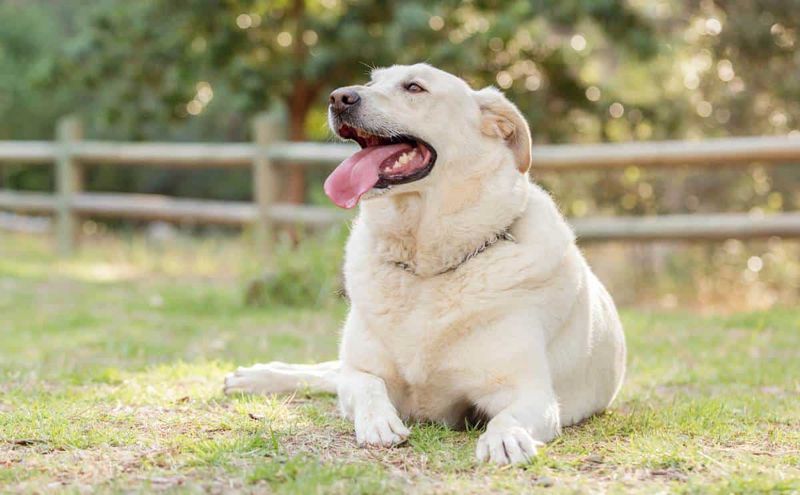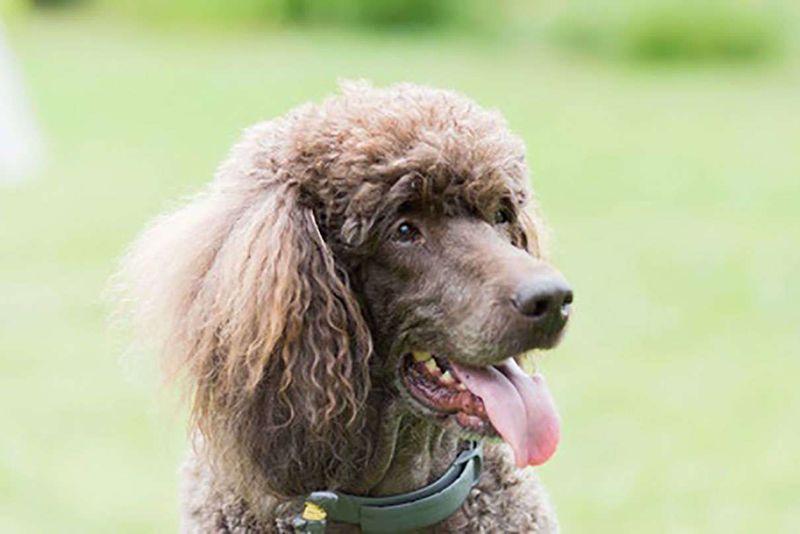Health Problems Linked To Popular Dog Breeds

Dogs are man’s best friend, but behind those wagging tails and puppy eyes lie hidden health challenges. Some breeds, adored for their unique looks and charismatic personalities, are prone to specific ailments that can affect their quality of life.
It’s crucial for dog lovers to be aware of these potential health problems to ensure their furry companions live long and healthy lives. Get ready to explore the top health issues associated with popular dog breeds.
1. Bulldog – Brachycephalic Syndrome

Bulldogs, with their adorable wrinkled faces and soulful eyes, are prone to Brachycephalic Syndrome, a condition that affects their breathing.
This occurs due to their uniquely shaped skulls, leading to narrow nostrils and an elongated soft palate. The result? Bulldogs often snort, snuffle, and can even struggle to breathe, especially during exercise or in hot weather.
It’s like trying to breathe through a cocktail straw while sprinting!
Unfortunately, this condition can lead to more severe respiratory issues, requiring surgical intervention to alleviate their distress.
Many Bulldog owners find themselves in the vet’s office more often than at the dog park, ensuring their pup’s airways remain clear. Adopting a Bulldog means committing to a lifestyle that accommodates their special needs, from preventing overheating to managing their exercise carefully. Yet, despite these challenges, Bulldog lovers cherish their pets for their affectionate, loyal nature.
2. German Shepherd – Hip Dysplasia

The noble German Shepherd, known for its intelligence and versatility, often faces the challenge of hip dysplasia. This genetic condition occurs when the hip joint doesn’t fit into the hip socket properly, leading to pain and arthritis over time. Imagine trying to dance with shoes two sizes too big; that’s how it feels for these dogs when they move.
Symptoms can range from mild to debilitating, with some dogs showing signs in puppyhood, while others develop issues with age. To manage this, owners must provide a combination of proper diet, weight management, and regular, moderate exercise. Veterinary care, including medications and sometimes surgery, becomes essential to maintain their quality of life.
These courageous canines, often employed as service dogs, deserve the best care possible to fulfill their roles. With the right attention and love, they continue to be loyal companions, even when their joints ache.
3. Dachshund – Intervertebral Disc Disease (IVDD)

Dachshunds, affectionately known as ‘wiener dogs,’ are prone to Intervertebral Disc Disease (IVDD) due to their elongated spines and short legs. This condition involves the herniation or bulging of spinal discs, which can lead to pain, nerve damage, or even paralysis. For these lively little dogs, it can feel like carrying a heavy backpack all day long.
IVDD can strike suddenly, often requiring urgent veterinary care, including surgery or physical therapy. Preventative measures, like controlling their weight and avoiding activities that strain their back, are crucial. Owners often invest in ramps and supportive harnesses to help their little buddies navigate the world safely.
Despite these challenges, Dachshunds are spirited and full of life, bringing joy and laughter to their families. With careful management and a loving environment, they can continue to chase after their favorite squeaky toys.
4. Labrador Retriever – Obesity

Labrador Retrievers, beloved for their friendly nature and boundless energy, often struggle with obesity. This breed’s love for food is legendary, and without careful portion control and regular exercise, those extra pounds can sneak up. It’s like having eyes bigger than your stomach, but every day!
Obesity in Labs can lead to a plethora of health issues, including joint problems, heart disease, and diabetes. Owners must be vigilant, providing nutritious meals in appropriate amounts and ensuring their Labs get plenty of playtime and walks.
While managing a Labrador’s weight can be daunting, these dogs’ loyalty and zest for life make it all worthwhile. By fostering a healthy lifestyle, owners can enjoy many years of adventures with their four-legged friends, who are always ready for the next game of fetch or swim in the lake.
5. Poodle – Addison’s Disease

Poodles, with their elegant appearance and sharp intelligence, are susceptible to Addison’s Disease. This endocrine disorder occurs when the adrenal glands fail to produce sufficient hormones, leading to symptoms like lethargy, vomiting, and weakness. It’s akin to running on empty, where even the smallest tasks become monumental challenges.
Diagnosis can be tricky, as symptoms often mimic other conditions, requiring blood tests for confirmation. Once identified, lifelong treatment with hormone replacement therapy is necessary, requiring regular veterinary visits and careful monitoring.
Despite the ongoing management required, Poodles live up to their reputation as resilient and adaptable companions. Their loving nature and quick wit endear them to families worldwide, proving that even in the face of chronic illness, they remain dignified and devoted friends.
6. Yorkshire Terrier – Tracheal Collapse

Yorkshire Terriers, those tiny dynamos with big personalities, often face the problem of tracheal collapse. This condition occurs when the small rings of cartilage in the trachea weaken, leading to a narrowed airway. It’s like breathing through a straw, turning even the gentlest walk into a marathon.
Symptoms include a characteristic honking cough and difficulty breathing. While it may sound alarming, with proper care and management, Yorkies can lead happy lives. Treatment often involves medication and lifestyle changes, such as avoiding neck collars and using harnesses instead.
Yorkshire Terrier owners must be vigilant, ensuring their pets avoid stress and maintain a healthy weight. With love and attention, these spirited little dogs continue to charm everyone they meet, proving that even the smallest bodies can hold the biggest hearts.
7. Boxer – Cancer

Boxers, known for their boundless energy and affectionate nature, are sadly prone to various forms of cancer, including mast cell tumors and lymphoma. Cancer in Boxers can be a tough battle, akin to facing a silent and unpredictable adversary.
Regular veterinary check-ups and early detection are crucial in managing this risk. Owners must be proactive, watching for signs like lumps, changes in appetite, or sudden lethargy. Treatment options vary, from surgery to chemotherapy, and often require a combination of approaches.
Despite the challenges, Boxers remain resilient, often bouncing back with vigor and enthusiasm. Their playful spirits and deep bonds with their families make every moment precious, reinforcing the importance of vigilance and regular health screenings to ensure they enjoy a long, happy life.
8. Beagle – Epilepsy

Beagles, with their inquisitive noses and playful demeanor, may be prone to epilepsy, a neurological disorder that causes seizures. Watching a beloved pet go through a seizure can be heart-wrenching, akin to witnessing a storm you cannot control.
Seizures can vary in severity and frequency, and managing them often involves a tailored medication regimen and regular veterinary care. While epilepsy can be a lifelong condition, many Beagles live full, happy lives with the proper treatment.
Owners play a crucial role, providing a calm environment and monitoring their pets for any changes in behavior. With patience and dedication, these lovable hounds can continue to sniff out adventures and bring joy to their families, proving that a little persistence goes a long way.
9. Shih Tzu – Eye Problems

Shih Tzus, with their luxurious coats and adorable faces, are prone to a variety of eye problems, including progressive retinal atrophy and cataracts. These issues can lead to vision impairment or blindness, turning their world into a hazy landscape.
Regular grooming and eye care are essential to prevent infections and maintain their eye health. Owners must be diligent, watching for signs like redness, squinting, or unusual discharge. Veterinary visits for eye exams become a crucial part of their routine.
Despite these challenges, Shih Tzus remain charming and full of personality, winning hearts with their endearing antics. With the right care and a loving home, they continue to thrive, reminding us of the beauty in seeing the world through their eyes.
10. Cavalier King Charles Spaniel – Heart Disease

Cavalier King Charles Spaniels, adored for their gentle temperaments and expressive faces, are unfortunately prone to heart disease, particularly Mitral Valve Disease. This condition occurs when the heart’s mitral valve deteriorates, leading to heart failure if not managed.
Symptoms include coughing, difficulty breathing, and reduced activity levels. Regular veterinary check-ups and early intervention are imperative to manage this condition. Treatment may involve medications to support heart function and reduce fluid buildup.
Despite the seriousness of heart disease, Cavaliers continue to bring joy and love to their families. Their affectionate nature and eagerness to please make every moment with them special. With attentive care and a focus on their health, these regal companions can enjoy a quality life, spreading warmth and companionship wherever they go.






